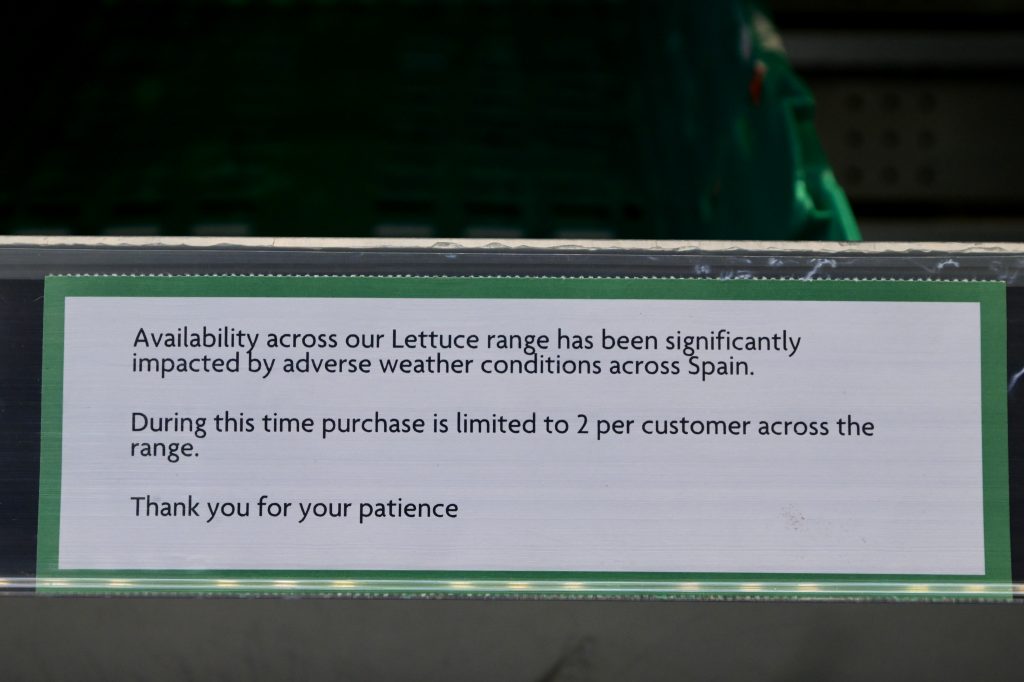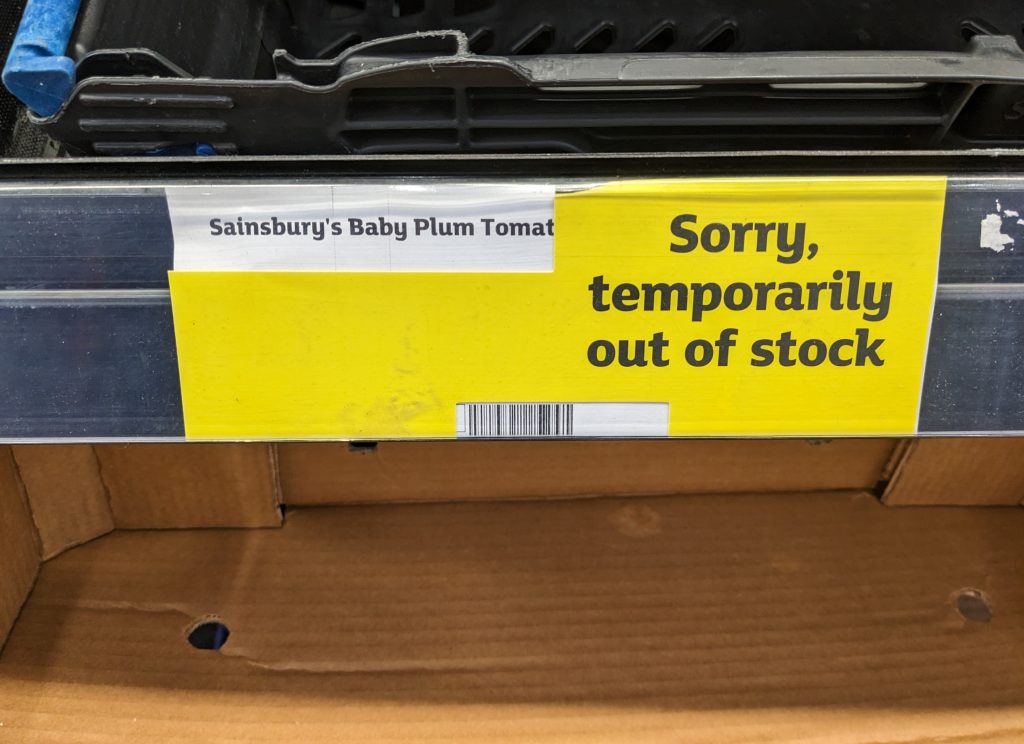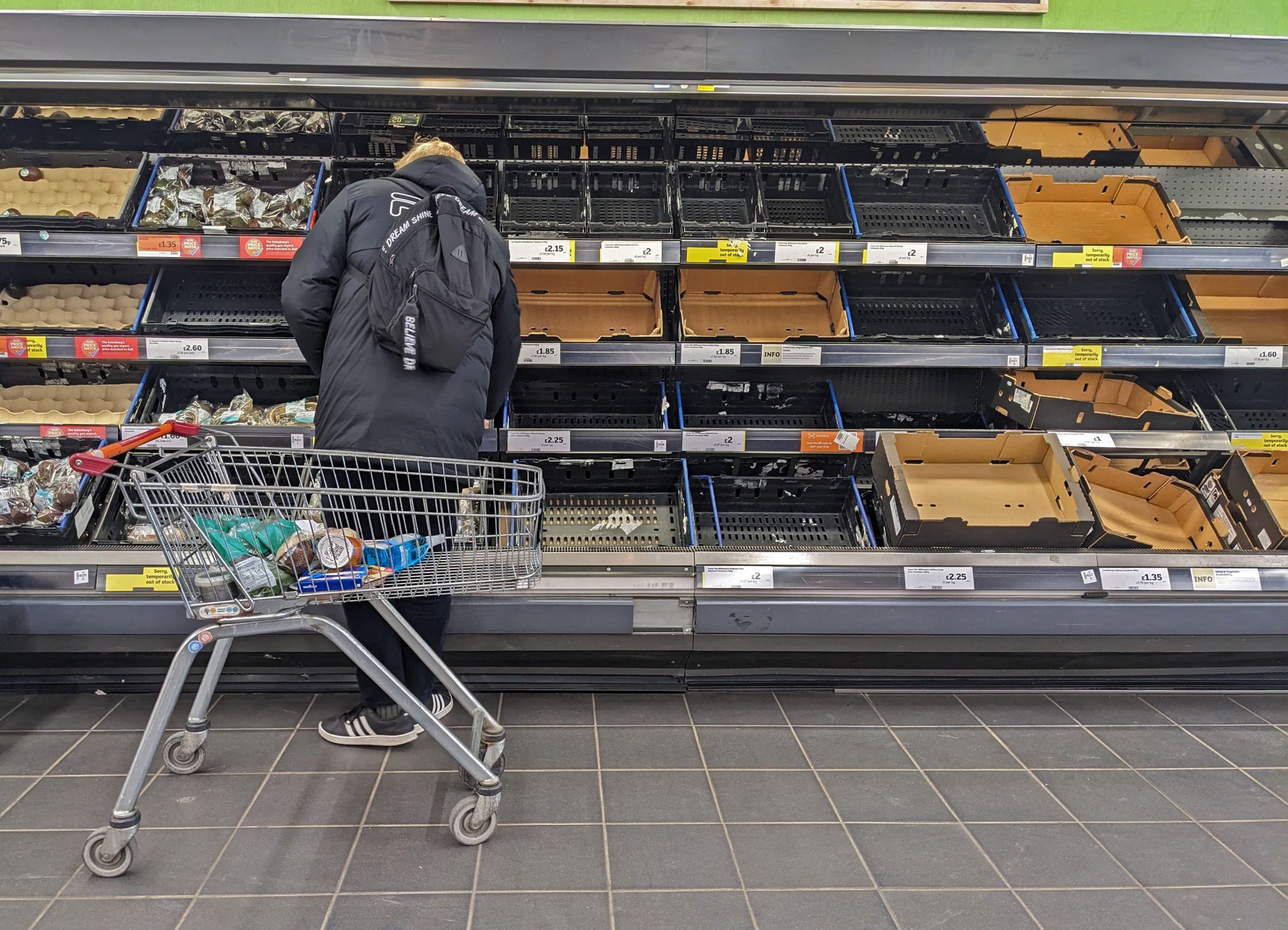Supermarkets nationwide have been running out of basic produce and students have noticed empty shelves in some stores in Kingston and Surbiton.
The main items that are running short are tomatoes, cucumbers and other salad crops.
Chains such as Lidl, Tesco, and Sanisbury’s have said that the reason behind the lack of supply is bad weather in countries like Spain and Morroco disrupting the harvest.
In order to temporarily solve the issue, supermarkets have been rationing their fruit and vegetable supply, limiting the number of some fruit and vegetables that customers can buy.

Faisal H a KU student said: “Prices are going up every day. We don’t need a new issue on our hands.
“I always bought groceries in bulk, and now not only do I have go to the store several times a week to buy the same product because it is limited, but also I can already barely find the fruit or vegetables in any supermarket. It is always out of stock.”
Customers have taken to Twitter to complain about the empty shelves saying they are not able to fulfill their basic needs when grocery shopping.
The UK imports more than 20% of the tomatoes for example from Spain and 25% from Morocco.
Severe cold weather and rain have reduced the outdoor harvest in those countries, while in addition, high energy bills have made it harder for indoor producers in countries like the Netherlands and the UK.
Cucumber production has fallen by 21%, while peppers and aubergines are down to 25%.

The legacy of issues like Covid, Brexit, and a shortage of lorry drivers in the country are also factors contibuting to supply issues. The cost of living is also having an impact.
The National Farmers Union has said that the price of fertilisers and equipment, as well as rising living and fuel costs, are having a negative impact on British crop production. Meaning UK growers are not in a position to plug the gaps.

